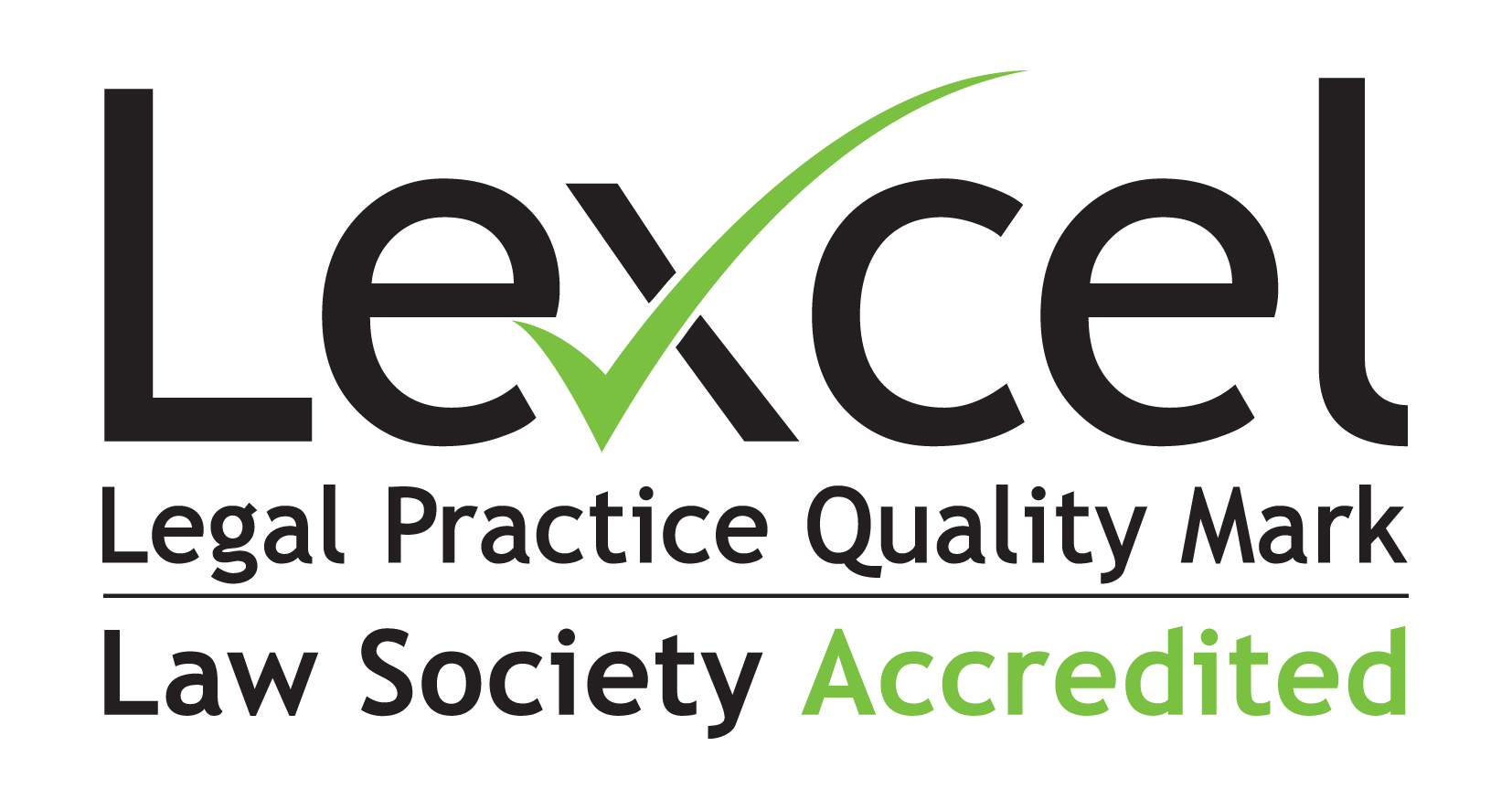- Home >
- Wills, Probate & Trusts >
- Probate
Probate
First Appointment- what do we need and what to bring:
Don’t worry if you can’t produce anything or everything. The idea behind the list is to avoid the comment, “if I’d known that would have been useful, I’d have brought it”.
- Identity documents.
- A death certificate or coroner’s letter.
- The will, if you have it, or a copy and details of where the original is.
- The up to date address of anyone named in the will.
- If there is no will, details of the family of the deceased person.
- Banks account details, building society passbooks, details of national savings investments, premium bonds, insurance policies, share certificates and any other financial information or documents.
- Details of any property or properties owned by the deceased person, including the deeds if you have them.
- Any house, contents or car insurance policy.
- Recent utility bills.
- Pension details; state, private and from former employers.
- Tax office and reference with national insurance number.
- The funeral account or the funeral director’s details.
- Any outstanding bills or money owed by the deceased person, including any credit card bills.
- If the person who has died was in business or had more complicated financial affairs, details of their accountant and financial adviser.
Client Guide:
If we are asked to obtain a Grant of Representation (either a Grant of Probate or a Grant of Letters of Administration) in an estate of someone who has died recently, we shall do our utmost to take over the administrative burden with as little fuss and bother as possible. The purpose of this Guide is to tell you in very simple terms what is involved in obtaining a Grant of Representation and administering an estate.
Although the guide sets out more or less the whole process, we will do as much or as little as you like. If you decide to proceed without a solicitor and then feel you need our help, we won’t hold this against you. If you are the executor but are returning abroad immediately after the funeral, then you can appoint one of our partners to act in your place. If you just want us to obtain the grant of representation and leave you to collect in the assets and administer the estate, we won’t be offended
What is a Grant of Representation?
A Grant of Representation is an order issued by one of the Probate Registries of the High Court, which confirms or confers the authority of the “personal representatives” (i.e. the executors or the administrators) to administer the estate of the deceased person.
There are three types of Grant of Representation:
A Grant of Probate: This is issued to one or more of the executors named in the will to deal with the estate. It confirms or “proves” the authority of the executors appointed by the will.
A Grant of Letters of Administration with Will annexed: This is issued when there is a will, but either there is no executor named in the will or, alternatively, all the named executors are unable or unwilling to act as executors and to deal with the administration of the estate. If you are appointed executor but do not feel able for any reason to carry out this task, we can help you forgo your right to take out the grant, by renouncing probate or by appointing some-one by power of attorney to take on the role.
A Grant of Letters of Administration: This is issued when the deceased died without leaving a will (which is known as being “intestate”). The persons who obtain a grant of letters of administration are known as administrators and must establish their entitlement to apply for a grant.
The duty of the personal representatives is to administer the estate. This includes collecting all the assets, settling all the liabilities, exercising any available powers and discretions and then distributing the rest of the estate in accordance with the terms of the will or the rules of intestacy. It is normally not possible to collect assets (apart from joint accounts which pass automatically to the survivor) or to pay liabilities of the estate out of the assets of the estate until the Grant of Representation has been obtained.
What is needed to obtain a Grant of Representation?
The personal representatives must swear an oath for the court. The executors must say that they are the executors appointed by the will. The administrators must establish their entitlement to take out a grant.
The personal representatives must state the value of the gross and net estate of the person who has died, and they must swear that they will ensure that his or her property will be distributed in accordance with the law and with the will if there is one.
They must complete a form giving details of the value of the estate for H M Revenue and Customs.
You can see, therefore, that we shall need to ask you for details of all the property and all the debts or liabilities. The property will include any house, car, furniture, savings, life insurance policies, personal possessions, jewellery and anything capable of being valued and of being transferred from one person to another. The liabilities may include a mortgage, outstanding bills, etc. and will also include the funeral expenses.
How is a Grant of Representation obtained?
Any inheritance tax due must be paid. We can usually arrange for funds to be released from an estate to do this.
The oath for executors or oath for administrators is lodged at one of the Probate Registries of the High Court with the receipt for the tax paid and the probate registry fee. Once the registry accepts the papers, they will issue either a grant of probate or a grant of letters of administration.
What next?
The grant is the document which allows the executors or administrators to administer the estate.
The grant will be registered with companies in which there were shares, or with building societies or banks in which there was an account in the deceased’s sole name.
After the grant has been registered, it will be possible for the property or the money to be transferred to the personal representatives, so that they can deal with it in accordance with the will, or in accordance with the intestacy rules if there is no will.
A final distribution of all the assets can only be made when all the liabilities, especially tax liabilities, have been ascertained and settled. This can take some time, particularly where values are uncertain and have to be agreed with the Revenue.
How long will this take?
The circumstances of each person are unique, so it is extremely difficult to predict how long it will take to obtain a Grant and to administer the estate. All we can say is that we shall keep in touch with you from time to time in order to tell you the position we have reached and how matters are progressing.
Estates which are apparently simple can prove to be complicated and take much more time than is envisaged at the outset. Similarly, a large estate may prove to be straightforward. Difficulties may arise for any number of reasons.
Typical problems which may substantially increase the time taken are:
- the need to go through and sort out numerous old papers;
- searching for details of lifetime gifts which the deceased may have made;
- difficulty in realising assets or in settling tax or other liabilities;
- difficulty in obtaining valuations of farmland;
- difficulty in tracing beneficiaries or in dealing with beneficiaries who are under age;
- the need to obtain details of a deceased spouse’s estate in order to claim an additional inheritance tax allowance;
- foreign property and the need to liaise with foreign lawyers;
- trusts in which the deceased had an interest;
- agricultural or business property, especially Lloyd’s assets which cannot be wound up for at least three years;
- there may also be scope for tax planning and consideration of a Deed of Variation (varying the effect of the will or the intestacy rules).
The final winding-up:
When all the assets have been collected and all the liabilities discharged, we prepare estate accounts setting out full details of the administration of the estate, so you can see what monies have been received and paid out.
When the accounts have been approved, the balance of the estate can be distributed or held in trust for the beneficiaries under the terms of the will or the rules of intestacy.
If the estate or its administration is complex, then it may be possible for the personal representatives to make interim distributions to beneficiaries before the final winding-up.
Fees:
It is very difficult to estimate the likely cost of obtaining a Grant of Representation and administering an estate because there is insufficient information at the outset as to the nature of the estate and the potential problems.
Our charges are calculated in accordance with the Solicitors Act 1974. This provides that a solicitor’s remuneration for non-contentious (i.e. non-litigious) matters should be fair and reasonable having regard to all the circumstances of the case.
The factors to be taken into account include the time spent in dealing with the matter, the value of the assets involved, which affects the complexity and importance of it, the skill required and the need for urgency.
The time element:
We have a computerised time-recording system which records the time spent by fee earners on any particular matter at the rate applicable to the fee earner concerned.
Each fee earner has an hourly charge out rate calculated in accordance with the Solicitors’ Regulation Authority’s published guidelines. We adopt the recommended rates issued each year by the local courts office.
The value element:
Our charges will also contain an element based on the value of the estate because the value is a reflection of the importance of the matter and the responsibility imposed on the firm.
The value element is 1% of the gross estate where the gross estate does not exceed £400,000 and is halved for any balance of the estate over £400,000. There are some further modifications:
- The value of the deceased’s interest in his or her residence is halved.
- The value of any property which does not vest in the personal representatives is excluded, so that no value element would be charged on a half-share of a house which was owned by the deceased as a beneficial joint tenant, and so passed to the other owner outside the terms of the will or the intestacy rules.
- Where a partner is appointed as an executor, an additional value element of up to 0.5% may be charged.
- If the instructions relate solely to the application for a Grant of Representation, no value element is charged. Instead the hourly rate is increased by 10%. VAT will be added to the bill.
If for any reason this firm does not complete the work which you have instructed us to do, then a charge will be made for the work which has already been completed based on the time element and on a proportion of the value element.
Additional expenses – disbursements:
- Court fees -£155 for a grant of representation and 50p for each official copy of the grant (the Court charges an extra £60 for an application submitted by a private individual)Commissioner’s fees payable to the solicitor or commissioner for oaths in front of whom oaths or declarations are made-£5 plus £2 for each accompanying document.
- Statutory advertisements –advertisements to protect the executors or administrators from creditors claims cost around £200.
- If you are the personal representative, your legal costs will be paid from the estate, provided you have acted reasonably and funds are available
- We normally delay sending our first bill until probate has been obtained and funds are available to pay it.
- We deliver bills at regular intervals for the work carried out during the administration of the estate to enable you to keep track of costs.
- We are sure that you will understand that if a payment is not made, we must reserve the right to decline to act any further and that the full amount of the work done up to that date will be charged.
- Accounts should be settled on presentation.
- If the bill remains unpaid after one month, interest will be charged from that time on the amount of the bill, including any disbursements and VAT. The rate of interest will be the same as the rate payable on judgment debts.
Insurance
If we need to arrange insurance, for example for a property or in connection with a missing beneficiary, we only select products from a limited number of insurers, but we are not contractually obliged to conduct business in this way.
Complaints
We aim to offer all our clients an efficient and effective service. If any problem arises, you should first try to resolve the issue with the fee earner dealing with the matter. If the problem cannot be resolved in this way, you may ask for the matter to be referred to the head of the department.
If you are still dissatisfied, you may ask for it to be referred to the Managing Partner.
If for any reason we are unable to resolve the problems between us then you can ask the Legal Ombudsman to consider the matter. He can be contacted at PO Box 6806, Wolverhampton, WV1 9WJ, telephone number 0300 555 0333







